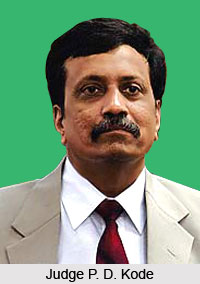 Pramod Dattatrey Kode better known as P D Kode is the assigned judge of TADA (Terrorist And Disruptive Activities Pervention Act )court that dealt 1993 Bombay Blasts case.No other criminal case in India`s history ran as long as this case. This youthful pan-chewing man has the daunting task of reading 13,000 pages of oral evidence, 7,000 pages of documentary evidence, and 6,700 pages of statements of the accused. There are a whopping 686 witnesses in this case.
Pramod Dattatrey Kode better known as P D Kode is the assigned judge of TADA (Terrorist And Disruptive Activities Pervention Act )court that dealt 1993 Bombay Blasts case.No other criminal case in India`s history ran as long as this case. This youthful pan-chewing man has the daunting task of reading 13,000 pages of oral evidence, 7,000 pages of documentary evidence, and 6,700 pages of statements of the accused. There are a whopping 686 witnesses in this case.
Judge Kode began his judicial career in court room number 22 in the sessions court, next to Mumbai University. In mid-1993, a special TADA court hearing the blasts case was formed as part of the sessions court. In January 1994, the designated TADA court was formed with J N Patel as the presiding judge. When Patel was elevated to the High Court in March 1996, Judge Kode took over.
Since he began hearing the case, Kode has received eight threats to his life, all of them through letters written mostly in unidentifiable Urdu that ask him to be rehemdil (benevolent). That makes him the most protected judge on the Z-security list.
The accused also respect him a great deal, particularly because he has always lent an ear to their woes. Judge P D Kode has listened to the accused"s point of view even during court proceeding and has reassured them about the issues they face. Judge P D Kode was benevolent enough to allow some of the accused to go to make the Haj pilgrimage. He took no leave from March 1996 till June 2007. His dedication is such that he did not miss court sessions even when he broke his arm .




















